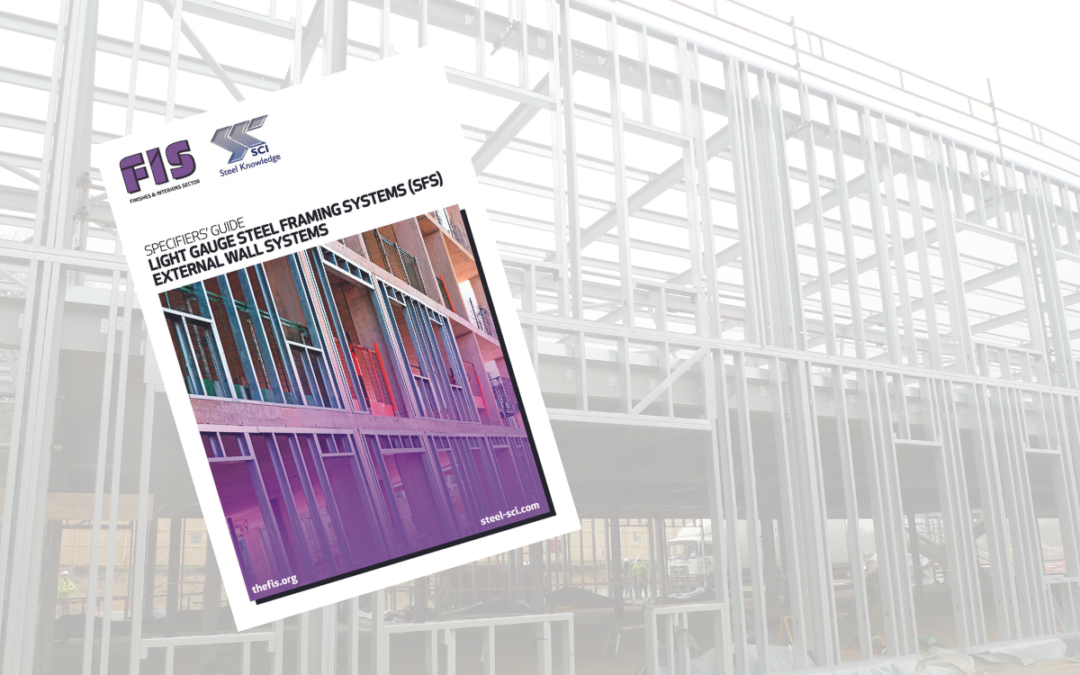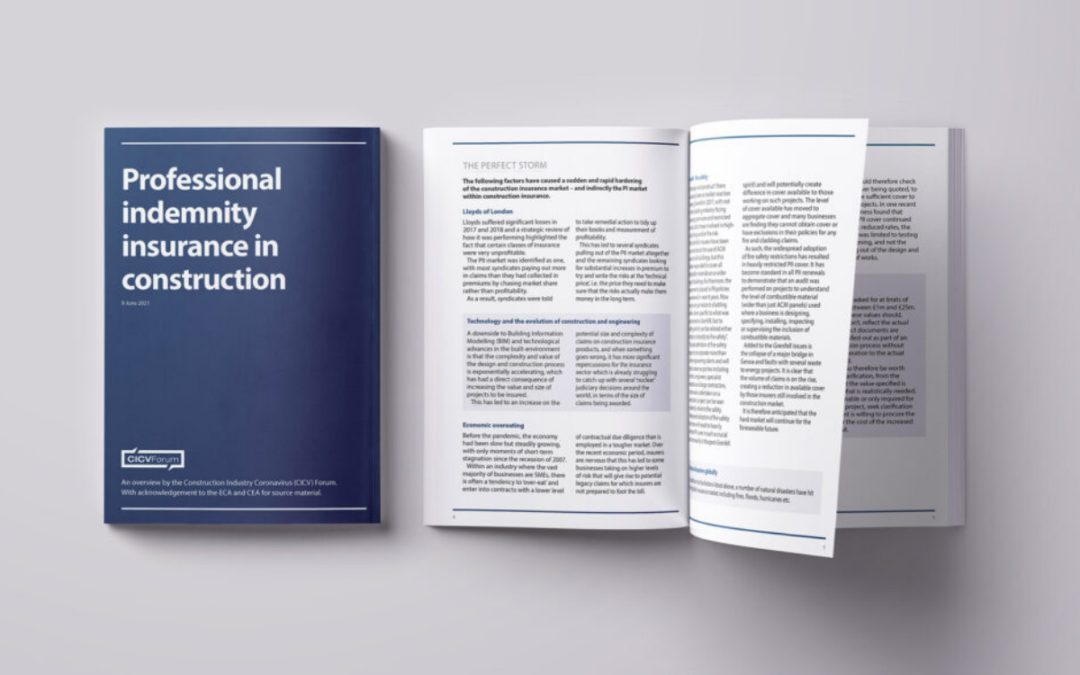
by Clair Mooney | 16 Jul, 2021 | Skills
FIS is working working with the developed governments regulatory authorities to add a qualification route for the maintenance of operable partitions. Support from employers is needed to complete this work, if you agree a qualification is needed for this activity, please email georgeswann@thefis.org indicating your agreement of the need for a qualification in service, maintenance and repair of operable walls.
This work is supported by CITB. For details visit the Interior systems sectionf of the CITB website and look in ‘Reviews’ titled Operable Partition NOS – Service, maintain and repair operable partition wall systems.

by Clair Mooney | 15 Jul, 2021 | Main News Feed
As England moves to Step 4 of the COVID‐19 Roadmap on Monday 19 July, the majority of restrictions will end, however the SOP will remain available and businesses may want to maintain elements of social distancing for the time-being.
The Scottish Government has confirmed that Scotland will move to Level 0 on 19 July but certain mitigations will remain in place, including the mandatory wearing of face coverings and working from home where possible. Wales will move fully to alert level one from 17 July and to a new alert level zero on 7 August and Northern Ireland is expected to outline its plans for easing restrictions shortly.
The Prime Minister confiemd that from Moday 19 July people will no longer be required to work from home; however, the Government is emphasising that the pandemic is not over and people should exercise caution and take personal responsibility. It is expected and recommended that face coverings are worn in crowded and enclosed spaces when mixing with people you don’t normally meet, and the Mayor of London has confirmed that they will remain mandatory on the London transport network. Guidance will be published for businesses on managing the return to the workplace and the current position will be reviewed in September.
The CLC has issued a statement confirming that the Site Operating Procedures will remain available as a reference document from Monday 19 July. Whilst they will no longer reflect the latest Government guidance, businesses across the supply chain have welcomed the consistency that the Site Operating Procedures have provided and they may wish to maintain elements of social distancing for the time being. The CLC also recommends that the good practices the industry has adopted over the last 18 months are retained.
The CLC has updated its guidance on the Use of facecoverings in construction in line with the latest Government guidance from 19 July.
On a call earlier this week, almost 90% of Build UK Contractor members indicated that they will be maintaining social distancing measures on some or all of their sites until at least 16 August, when the requirement for close contacts to self‐isolate will be revised for those who have had both doses of the vaccine or are under 18.

by Clair Mooney | 13 Jul, 2021 | Main News Feed
To support self-employed people who have pension concerns or questions, or simply feel a bit lost when it comes to retirement planning, Money Helper has established a dedicated appointment service, called Midlife Pension Review. The service, which is free to access, covers four areas: work, health, family, and money. In these topics they will help you think about how they affect your pension, and what the best course of action for you might be.
The appointment will cover and explain:
- the pension options available to you
- what you’ll need to think about and the things you’ll need to ask
- your next steps, signposting to helpful organisations, should you need them.
An online guide is available here and you can book a free, full telephone appointment with one of the Money Helpers specialists by emailing virtual.appointments@maps.org.uk
MoneyHelper are an arm’s-length body sponsored by the Department for Work and Pensions and funded by levies on both the financial services industry and pension schemes, the organisation consolidates the previous work of the Money Advice Service, The Pensions Advisory Service and Pension Wise.

by Clair Mooney | 13 Jul, 2021 | Labour, Material Shortages
The construction industry is currently facing challenges on the availability and pricing volatility of labour and materials. This volatility could have a significant impact on the timeframes and delivery costs of many projects.
Most forms of construction contract have standard provisions for managing volatility, without the need to make contract amendments. These provisions, such as fluctuations provisions in JCT and NEC 4 Secondary X1, provide a means of collaboratively sharing the risks associated with this volatility.
In an open letter to the industry Andy Mitchell, Chair of the Construction Leadership Council (CLC) is strongly urge those responsible for developing, agreeing and managing contracts, existing and new, to consider adopting these provisions in their contracts.
The contractual challenges created by lack of product availability and inability to access approved products are likely to mean design changes are necessary. Therefore, again, the CLC would encourage a collaborative approach to be taken to managing these risks.
Commenting on the statement FIS CEO Iain McIlwee stated:
“This is a welcome intervention from the Construction Leadership Council and I would personally like to thank Andy for picking up the mantel here. We have been vocal and remain concerned that clients and main contractors are still focussed on squeezing risks through the supply chain and we are getting to the point where fixed price contracts may not be tenable on certain works. We continue to urge members, before you sign a contract check the delay clauses and look at the fluctuation clauses too, if you cannot negotiate a shared risk approach with your client, you need to seriously consider pricing in risk moving forwards and ask yourself what could worse case scenario mean to your business if prices drifted or sourcing issues beyond your control delay the programme.”
Read the letter here.

by Clair Mooney | 8 Jul, 2021 | Skills
FIS members who are likely to pay the Construction Industry Levy as proposed by CITB for 2021 to 2025 are invited to have their say by participating in the Consensus Survey
The proposed CITB Levy Rate for the period 2022-2025 is 0.35% for PAYE and 1.25% on Net paid (taxable) CIS sub-contractors. Those with a total wage bill between £0 – £119,999 will be exempt from paying Levy and those with a total wage bill between £120,000 – £399,999 will see a 50% reduction on their Levy.
FIS is a ‘Prescribed Organisation’ which means that we are required to formally consult members on the Levy proposals put forward by CITB and respond collectively on their behalf.
To this end, we are asking members to complete our short survey – it should only take 5 minutes to complete. Only the views of those employers who are likely to pay the construction levy under these proposals will be counted in the consensus vote.
The closing date for responses in 6 August 2021.
If you have any queries please call the office on 0121 707 0077.

by Clair Mooney | 7 Jul, 2021 | Market data
The
latest information from Builders’ Conference shows that there were 516 contracts worth £7.2 billion awarded in June. Whilst the number was slightly lower than the previous month, it was still 3% higher than the monthly average over the past year and 24% higher than June 2020, indicating that construction has recovered more quickly from the most recent lockdown. The increase in value was largely due to three projects worth £1.3 billion awarded under the Future Defence Infrastructure Services (FDIS) programme to provide repair and maintenance services across the UK defence estate. 26% of all the contracts awarded by value were housing (£1.9 billion) and 13% were rail projects (£925 million).
The number of tender opportunities was consistent with the previous month but remains 29% below the monthly average for the past year.

by Clair Mooney | 7 Jul, 2021 | Main News Feed, Market data
Forecast tool identifies over 1,150 public sector construction projects across Scotland valued at c.£8.5b.
An innovative online tool has been launched to provide the construction industry with greater clarity and understanding of future public sector construction projects to be delivered across Scotland.
The Construction Pipeline Forecast Tool has been developed by infrastructure body the Scottish Futures Trust in partnership with the public sector together with representatives from the construction industry.
The interactive tool has been created in response to actions coming from the Construction Industry Recovery Plan published in October 2020 by the Scottish Construction Leadership Forum.
With a current value of just under £8.5 billion, the Construction Pipeline Forecast Tool has details of over 1,150 future public sector infrastructure projects and covers many sectors including education, health, housing and flood prevention.
Of the 1,150 project opportunities, approximately 60% are below £2m in value, emphasising the focus on providing opportunities to small and medium-sized enterprises. This will continue to grow as additional contracting authorities join the system going forward and will be updated every six months.
By providing greater transparency on future workload, the pipeline will help businesses plan better and maintain their investment in skills and future training needs. It will also encourage collaboration between public sector organisations through a greater understanding of their respective construction pipelines.
The pipeline also seeks to provide a longer-term view on forecast investment and identifies construction projects up to 2028, with the majority of the forecast spend occurring before 2025. The types of construction projects include new build, refurbishments, maintenance works as well as road infrastructure.
The Construction Pipeline Forecast Tool allows the user to simply and easily explore data held using various criteria that includes the chosen procurement route, the procuring authority, contract value and sector.
Peter Reekie, chief executive of the Scottish Futures Trust (SFT) and chair of the Executive Group of the Scottish Construction Leadership Forum said: “Providing businesses working in the construction sector with this detailed information creates greater confidence through improved project transparency. As a result, it will allow businesses to invest correctly and recruit accordingly, as well as build stronger partnerships within supply chains.
“Through being a key partner in the Scottish Construction Leadership Forum, SFT took responsibility to deliver the Construction Pipeline Forecast Tool, one of the actions coming from the Construction Industry Recovery Plan which was published in October 2020 in response to COVID-19.
“Building the Construction Pipeline Forecast Tool was met with strong levels of engagement across the whole of the public sector, which has been greatly appreciated, and we look forward to continuing to work with the sector on this leading-edge development.”
Welcoming news of the pipeline launch, Ivan McKee, Minister for Business, Trade, Tourism and Enterprise, said: “This is a crucial time for business, trade and investment in Scotland and we are pushing forward with an ambitious agenda of recovery and economic transformation. Construction will play a key part in that recovery, delivering critical infrastructure and supporting our important net zero commitments.
“By working together and galvanising the expertise and ingenuity of the construction industry, we can enhance Scotland’s economic potential and deliver greater, greener and fairer prosperity.
“This online tool will provide businesses with the pipeline visibility they need to plan investment in skills, labour and materials which will support jobs and business growth. It also delivers new opportunities for small and medium-sized business across the sector by providing visibility of smaller contracts. This key ask from industry has been delivered through the Construction Leadership Forum Recovery Plan – demonstrating how we can work together to deliver the changes the sector needs.
“This is just the start of an exciting process and I encourage other public bodies to share their data to broaden their market access.”
Stuart Parker, member of the Construction Scotland Industry Leadership Group and Chair of its Procurement sub-group, said: “The Construction Pipeline Forecast tool is a really exciting development for the industry, bringing together details of the upcoming opportunities in the sector in one user-friendly format.
“It will really help the industry to understand the direction of travel in social infrastructure, providing confidence to invest in the resources and skills needed to help the country rebuild better. The tool will help to provide visibility of opportunity to businesses of all sizes, but particularly SMEs throughout the supply chain.”
Speaking of the pipeline, Donald Gillies, Director of Place from South Ayrshire Council, said: “From a local authority’s perspective, the pipeline provides improved clarity of planned activity across neighbouring council areas which can help foster greater levels of collaboration and insight on future investment in infrastructure and buildings.
“Importantly, the pipeline will support the delivery of high-quality public sector buildings, created by a thriving construction industry employing local people.”

by Clair Mooney | 7 Jul, 2021 | Skills
At this time of year many young people will be considering ending their academic studies and entering the world of work. The opportunities available are many, as an employer it is a great time to consider taking on an apprentice in roles such as dry lining, ceiling fixing, partitions installer, plastering, design, estimating, planning or quantity surveying.
The road to a quality apprenticeship has been published by Education and Skills Funding Agency (ESFA) to help employers understand the steps involved in delivering high quality, successful apprenticeships in their businesses. The document provides links to information that employers can use to help them achieve a quality experience for their apprentices while maximising the benefits for their business. It will be followed by similar guides for end-point assessment organisations and apprentices.
The government continue to provide incentive grants for employers that take on apprentices:
In England
From 01 June 2021 employers of all sizes in England can apply for extra funding to help them take on new apprentices. The boost to the apprenticeship incentive scheme was confirmed by the Chancellor in the Budget in March. Business can apply to claim £3,000 for each new apprentice hired as a new employer from 01 April until 30 September 2021. The cash incentive is designed to help more employers invest in the skilled workforce they need for the future as part of the government’s Plan for Jobs.
This is in addition to the £1000 available for:
- aged 16 to 18 years old
- under 25 with an education, health and care plan or who has been in the care of their local authority.
In Scotland
£5,000 for employers taking on or upskilling a 16 to 24-year old apprentice, and for those aged up to 29 years who are disabled, care leavers and Minority Ethnic.
£3,500 for employers taking on or upskilling an apprentice aged 25 plus.
In Wales
Until 30 September 2021 businesses will be able to claim up to £4,000 for each new apprentice, they hire under the age of 25.
Skills and Training Lead George Swann say:
“Now is the ideal time to recruit the workforce of the future via apprenticeships. For more information on the options available to employers please see the FIS Apprentice – Guidance for Employers. If you would like to discuss this please give us a call we will be happy to help”.
Thinking of taking on an apprentice? FIS is here to help
 Apprenticeships are key to building the pipeline of skilled workers in the Finishes and Interiors Sector. With a range of apprenticeships available and funding support from both Central Government, Local Funding and the CITB complex to navigate, FIS can offer FREE specialist one to one support help you to work out your options, recruit candidates and identify training providers who can help you to get started or keep going. See our Apprenticeships – Guidance for Employers for more information, email Apprentice Help! with your contact details to info@thefis.org or simply call FIS on 0121 707 007
Apprenticeships are key to building the pipeline of skilled workers in the Finishes and Interiors Sector. With a range of apprenticeships available and funding support from both Central Government, Local Funding and the CITB complex to navigate, FIS can offer FREE specialist one to one support help you to work out your options, recruit candidates and identify training providers who can help you to get started or keep going. See our Apprenticeships – Guidance for Employers for more information, email Apprentice Help! with your contact details to info@thefis.org or simply call FIS on 0121 707 007

by Clair Mooney | 7 Jul, 2021 | Labour, Skills
The Construction Leadership Council has added its voice to other industry representatives including the CBI and the Road Haulage Association calling for a review of the occupations eligible for a visa and an immediate update to the shortage occupations list to include specialist piling rig operators, HGV drivers and others.
Along with other industry sectors, construction is feeling the impact of the new Points Based Immigration System and it is not just core construction skills that are affected. The availability of HGV drivers has been a growing cause of concern and complaints within the CLC’s Product Availability Group, and has clearly worsened to the point that it is now delaying deliveries and inflating costs across the UK.
Parliament’s Transport committee recently heard that the industry faces “a huge challenge of shortages, both in craft and particular skills” and that this shortage will have a greater impact as more major infrastructure programmes get under way. Employers of all sizes are now reporting challenges in employing suitably skilled workers and are calling for the new visa system to accommodate specialist construction workers to help alleviate the shortage in the short term whilst education policies are aligned to support UK workers gain appropriate qualifications and training including apprenticeships.
Whilst exploring the changes required to boost the construction sector workforce the CLC is supporting the Road Haulage Association’s calls to add HGV drivers to the Government’s Skilled Worker Shortage Occupation List and offering a seasonal visa scheme for qualified HGV drivers.
The recent upturn in the economy since the lockdown is increasing demand across supply chains, and the reopening of non-essential retail outlets and parts of the hospitality sector is making the situation more acute. According to the RHA, the UK has lost 15,000 European drivers this year due to Brexit, and 30,000 UK driver tests due to Covid, exacerbating the existing 60,000 driver shortage.
The construction industry is one of the largest users of the UK road network. With Government intervention and support, the sector was amongst the first to return to work during the pandemic; but the resulting sharp increase in activity has made clear an imbalance in supply and demand, including labour shortages.
Construction Leadership Council co-chair Andy Mitchell, said:
“We now have a situation where we believe the Government needs to intervene. Manufacturers, merchants and builders large and small are having products and materials delayed or not delivered, and warn that it is having a knock-on effect on construction schedules and leading to higher build costs. Industry can only take this so far, and as Government is also the largest client of construction services, we trust it will listen to the calls from all sectors to enable timely and appropriate reviews of the new immigration system.”
Suzannah Nichol MBE, CEO of Build UK, said:
“We do not have all of the specialist skills we need for the volume of construction projects underway and those in the pipeline across the UK. The new immigration system is proving difficult to navigate, is costly and actually prevents many of the people with the skills construction needs from coming here to work. By reviewing the eligible skilled occupations and the shortage occupation list we can ease the current pressures, support businesses to grow the economy and keep building faster, better and greener”
Brian Berry, Chief Executive of the Federation of Master Builders, added:
“The construction industry cannot be expected to ‘build back better’ when the industry is struggling to access key inputs – be that labour or materials. Small builders are already struggling to hire bricklayers and carpenters. Shortages of HGV drivers to get goods to merchants are now adding to the troubles they face. Clearly what SME builders are experiencing is part of a larger problem, and we hope the Government addresses it with the big picture in mind. The Road Haulage Association’s recommendations are sensible, achievable, and work for both the short term and long term.”
Richard Burnett, Chief Executive at the Road Haulage Association, said:
“We welcome the support of the Construction Leadership Council and the industry it represents. It is our view that there has never been a more challenging time for road haulage. We have strongly urged Government to take these decisive steps to ensure that we can continue to maintain the UK’s integrated and finely balanced supply chains. We certainly encourage the construction industry to ask Government and their local MPs for swift action.”

by Clair Mooney | 7 Jul, 2021 | Sustainability
The Construction Leadership Council (CLC) is calling on industry, government and society to help build a greener Britain to tackle climate change. Buildings and construction contribute 39% of the UK’s total carbon emissions so unless action is taken to make the construction industry greener, the UK Government won’t be able to meet its 2035 carbon reduction target of reducing emissions by 78%.
To help promote the message for a Greener Britain, the CLC has linked up with ITN
Productions to produce a new dynamic news style programme called, ‘Building A Greener Britain’, which will raise awareness of the ways in which the construction industry is proactively prioritising climate change. The programme will also offer a series of inspirational editorial profiles delivered by ITN reporters — filmed on location and remotely — highlighting industry leaders that are driving change, improving standards, and championing innovation across the UK.
The 2021 collaboration between ITN Productions and the CLC will ensure the key sector messages are covered within the programme and reach all relevant audiences. The CLC has recently launched CO2nstruct Zero, a plan outlining how the construction industry will come together to reduce its carbon footprint. The nine stated priorities, revolving around transport, buildings, and construction activity, include a shift toward zero-emission vehicles, the introduction of better building energy performance monitoring, and the implementation of broad spectrum carbon measurement.
Building A Greener Britain will launch ahead of the United Nations Climate Change Conference in Glasgow in November.
Responding to the CLC initiative, the Construction Minister, Anne Marie Trevelyan MP tweeted “Construction and buildings contribute 39% of the UK’s total carbon emissions. ‘Building a Greener Britain’ will showcase the incredible work #ConstructZero is doing to address climate change in the industry”
Nina Harrison-Bell, Head of ITN Productions Industry News said:
“The Industry News team are delighted to be working in partnership with the Construction Leadership Council to produce a programme that will raise awareness of key issues in the built environment sector, showcase best practice and provide an opportunity for thought leadership to be shared with a wide audience. Our programme will demonstrate how the sector can benefit society through high quality, energy efficient homes; safer public buildings reliable, interconnected transport networks and accessible, high-performing buildings and infrastructure that work for all and meet our sustainability obligations to future generations.”

by Clair Mooney | 6 Jul, 2021 | Building Safety Act, Main News Feed, Transformation
The Building Safety Bill will set out a clear pathway for the future on how residential buildings should be constructed and maintained.
The Bill, published on 5 July 2021, will create lasting generational change and set out a clear pathway for the future on how residential buildings should be constructed and maintained.
The Bill provides a framework for a seizmic overhaul to building safety legislation, giving residents more power to hold builders and developers to account and toughening sanctions against those who threaten their safety.
The new Building Safety Regulator will oversee the new regime and will be responsible for ensuring that any building safety risks in new and existing high rise residential buildings of 18m and above are effectively managed and resolved, taking cost into account.
This will include implementing specific gateway points at design, construction and completion phases to ensure that safety is considered at each and every stage of a building’s construction, and safety risks are considered at the earliest stage of the planning process.
These changes aim to simplify the existing system to ensure high standards are continuously met, with a ‘golden thread’ of information created, stored and updated throughout the building’s lifecycle, establishing clear obligations on owners and enabling swift action to be taken by the regulator, wherever necessary.
Under the proposals, the government is more than doubling the amount of time, from 6 to 15 years, that residents can seek compensation for substandard construction work.
The changes will apply retrospectively. This means that residents of a building completed in 2010 would be able to bring proceedings against the developer until 2025.
These reforms also include new measures which apply to those seeking compensation for refurbishments deemed to make the home unliveable.
New measures in the Building Safety Bill introduced today will:
- Ensure there are clearly identified people responsible for safety during the design, build and occupation of a high-rise residential building.
- Establish a Building Safety Regulator to hold to account those who break the rules and are not properly managing building safety risks, including taking enforcement action where needed.
- Give residents in these buildings more routes to raise concerns about safety, and mechanisms to ensure their concerns will be heard and taken seriously.
- Extend rights to compensation for substandard workmanship and unacceptable defects.
- Drive the culture change needed across the industry to enable the design and construction of high-quality, safe homes in the years to come.
Minister for Building and Fire Safety Lord Greenhalgh said: “The comprehensive steps we are taking today will ensure that industry and the regulatory system fully address the concerns raised in the ‘Building a Safer Future’ report by Dame Judith Hackitt.
“Though the overall risk of fire across all buildings remains low, we can’t be complacent – the more robust regime will take a proportionate and risk-based approach to remediation and other safety risks.
“And by increasing our measures of enforcement, we will make sure industry follows the rules – and is held to account when it doesn’t.”
The Bill will include powers to strengthen the regulatory framework for construction products, underpinned by a market surveillance and enforcement regime led nationally by the Office for Product Safety and Standards (OPSS).
The national regulator will be able to remove products from the market that present safety risks and prosecute or use civil penalties against any business that breaks the rules and compromises public safety.
The Bill also contains measures to protect leaseholders by providing a legal requirement for building owners to explore alternative ways to meet remediation costs before passing these onto leaseholders, along with evidence that this has been done.
This builds on the government’s commitment to fully fund the cost of replacing unsafe cladding for all leaseholders in residential buildings 18 metres and over in England, with an unprecedented £5 billion investment in building safety. This is alongside the introduction of a new levy and a tax to ensure that industry pays its fair share towards the costs of cladding remediation.
Developers will also be required to join and remain members of the New Homes Ombudsman scheme, which will require them to provide redress to a homebuyer, including through the awarding of compensation. Developers who breach the requirement to belong to the New Homes Ombudsman may receive additional sanctions.
Chair of the Independent Review of Building Regulations and Fire Safety Dame Judith Hackitt said: “I am delighted that we have reached this important milestone for the Building Safety Bill. It is vital that we focus on getting the system right for the future and set new standards for building safety.
“Residents and other stakeholders need to have their confidence in high rise buildings restored and those who undertake such projects must be held to account for delivering safe buildings.”
Building Safety Bill documents
FIS hosted an update and debate on the introduction of the Building Safety Bill in October 2020 – you can access a recording of the event here
View the FIS Statement on the Building Safety Bill changes that highlights a key concern related to changes to the Defective Premises Act – dated 9th July 2021

by Clair Mooney | 2 Jul, 2021 | Main News Feed
From 1 July employers will, for the first time since last year, have to contribute toward furlough payments – employer contributions now sit at 10% and will rise to 20% in August and September. This change marks the start of the wind down of the scheme, which is proposed to end on 30 September 2021.
With these changes in mind, are you confident you know what your options are when it comes to the end of furlough? Citation’s HR & Employment Law experts have put together a flow chart that outlines some of the possibilities. You can download a copy here.
If you’ve got questions about what to do when it comes to bringing people off furlough, FIS members have access to the Citation advice line 24/7 on 0345 844 4848.

by Clair Mooney | 2 Jul, 2021 | Main News Feed, Membership, Technical
FIS in partnership with the Steel Construction Institute (SCI) has launched a Specifiers’ Guide to Light Gauge Steel Framing Systems (SFS) External Wall Systems to help specifiers understand the granular details involved in the design process and production of a specification.
The Specifiers’ Guide was produced by the FIS SFS working group made up of manufacturers and installers of SFS external wall systems in conjunction with the Steel Construction Institute (SCI), which provide an independent source of information and engineering expertise in steel construction. It is intended to guide architects, engineers, designers and installers through the stages in designing, selecting and specifying steel framed systems to form the external envelope for steel and concrete framed buildings.
FIS Chief Executive Iain McIlwee said: “This is the second specialist guide that FIS has produced in partnership with the Steel Construction Institute and demonstrates the strength in collaboration, producing guidance to ensure that accurate and detailed specifications can be written so that external walling systems can be procured and installed to meet the required specification.
Commenting on the guide, Colin Kennedy, Chair of the FIS SFS working group and Managing Director of FIS member Veitchi Interiors said: “Specifying SFS external wall systems requires considerable thought and design, even before a specification can be written. This is because the specification should be developed alongside the engineering design rather than a simple output from a list of attributes and parameters, to cover the three light steel external wall systems and the six current variants of SFS.”
Andrew Way, Associate Director at the Steel Construction Institute, added: “In order to achieve the correct specification, a considerable amount of information is required about the intended use of the product and the desired performance characteristics. This was the learning curve for me and the key lesson that this new guide addresses, in that the SFS should be fully engineered specifically for the building. Most importantly its location, proximity to other buildings and how that building is designed to accommodate movement is essential before it can be specified.”
Colin Kennedy continued by saying: “The construction industry is rightly under the microscope to ensure that the lessons from the terrible tragedy three years ago at Grenfell Tower are learned and that this starts with ensuring that the specification is clear, compliant and written by those who are competent and subsequently installed by those who can demonstrate they have the Skills, Knowledge, Experience and Behaviour (SKEB) to be considered competent.”
The guide includes 23 questions relating to ‘critical building information’, a further 15 questions to check that they are all addressed, a list of 10 questions on risk and how to avoid them and a further 10 questions on writing a smart specification to ensure a safe, compliant and complete specification can be written. All of which is crucial to ensure that the specification is not open to misinterpretation, and that any alternatives can be assessed and checked as equal, before approving them.
The guide sits alongside other FIS best practice guides that relate to SFS:
Design and Installation of Light Steel External Wall Systems
Recommendations for the Safe Ingress of Plasterboard
FIS Health and safety handbook
These guides work well when they are included in proposals and project plans to demonstrate how to best approach a project and are an excellent introduction to new members of the team and any trainees and apprentices.
You can download the Specifiers’ Guide to SFS External Wall Systems here https://www.thefis.org/membership-hub/publications/specifiers-guides/light-guage-external-wall-systems/

by Clair Mooney | 1 Jul, 2021 | Drylining, Labour, Skills
In light of severe shortages predicted in the drylining sector, FIS has been helping to train new talent serious about a career in drylining.
For every 5% of EU workers that leave the UK, we double our annual recruitment target for drylining. The Settlement Scheme is now officially closed.
Through the FIS BuildBack programme, we have scheduled a number of courses which will help to get candidates site-ready, have a grounding in the skills and competencies required for installing drylining and have undergone an assessment and robust training course and that includes mandatory HS&E training and the provision of a Provisional CSCS card, PPE and basic tools.
The next step is where we need YOU.
We are looking for employers to provide the candidates with two-weeks work experience. There is no cost involved, we make all the arrangements for you. You can meet and select the candidates you want to offer work experience in order to ensure they are the best fit for your business.
If you are interested in finding out more, or can offer a placement, email catherinebullough@thefis.org

by Clair Mooney | 1 Jul, 2021 | Building Safety Act, Technical
In response to the Department for Education’s consultation on document BB 100 Fire Safety Design for Schools (see below), CPA has produced a strawman for discussion.
A virtual meeting to discuss this will be held on Tuesday 10 August to finalise the CPA response.If you are interested in attending, full details are available here.
===================================================
Building Bulletin 100 (BB100) is non-statutory guidance on fire safety for schools. The guidance covers designing a school building so that pupils and staff will have early warning if a fire breaks out and can evacuate quickly and safely. BB100 advises how to minimise the spread of fire and how to ensure the building structure is adequately resistant to fire. It also includes requirements for access and facilities for the Fire and Rescue Services. BB100 requires updating and simplifying, to see if additional fire safety measures should be included and whether there is content that is no longer needed.
In May 2019 CPA responded to a Department for Education consultation on the Technical Review of Building Bulletin 100 – Design for Fire safety in Schools. On 27 May 2021, the Department for Education published a revised draft of BB 100 together with a new consultation seeking answers to 12 questions.
The revised draft of BB 100 can be viewed here.
As CPA will be responding with a consolidated member’s view, we would encourage FIS members to complete this short questionnaire with their initial thoughts and email this to FIS by 30 June. CPA will then draw up a strawman and circulate for a later meeting to discuss the final text.
Members can also respond directly via the online consultation questionnaire here. This deadline for response via this survey is 18 August 2021.

by Clair Mooney | 30 Jun, 2021 | Labour

by Clair Mooney | 29 Jun, 2021 | Labour, Skills
The West Midlands is set to benefit from a new scheme to assist residents looking for employment or change of career and fill a skills shortage in local construction.
FIS BuildBack 2021 will see people from the region take on training at Sandwell College and work experience with local construction companies to enable them to begin apprenticeships and jobs.
FIS has set up the initiative with funding from the Construction Industry Training Board (CITB).
Courses in drylining will start from June at the college, initially involving up to 28 places, with a view to progressing to an apprenticeship and ongoing NVQ professional development funded by the West Midlands Combined Authority (WMCA).
CITB-funded research for the WMCA showed that in the West Midlands the construction workers in highest demand are in the interior fit-out and wood trades, with more than 15,000 needed across the Black Country, Greater Birmingham and Solihull, and Coventry and Warwickshire Local Enterprise Partnership (LEP) areas.
The West Midlands region is also forecast to have the highest construction growth rate of anywhere in the country in the coming years, at 4.8%.
BuildBack 2021 is aimed at recruiting from local people who are out of work, or looking for a change of career, or underrepresented groups in construction such as women or those from diverse backgrounds.
Lorraine Gregory, CITB Senior Customer Engagement Manager for the Midlands, said:
“We know there’s a skills shortage in the West Midlands for interior fit-out, and with the construction sector playing such a key role in the recovery BuildBack 2021 will help people enter a varied and exciting new career path.”
Catherine Bullough, FIS Skills and Training Coordinator, said:
“There’s real demand for finishes and interiors professionals in the West Midlands, and a strong pipeline of work including the Commonwealth Games in Birmingham next year makes this an exciting time to train up in a new trade.”
Andy Street, the Mayor of the West Midlands, said:
“Retraining and upskilling hold the key to getting people back into work following the impact of the Covid pandemic, and that is why they are a cornerstone of my ambitious but practical plan to create 100,000 jobs in just two years.
“By controlling the region’s training agenda, we can ensure local people are getting access to the skills they need to match employers’ needs. We know construction for example is going to continue to be a huge employer in the coming years, creating tens of thousands of new jobs in the West Midlands. So through schemes like BuildBack 2021 we can use our adult education budget to get people trained in the construction techniques that we know will get them into work.”
Further partners include and the Department for Work and Pensions. BuildBack 2021 in the West Midlands is part of a national scheme by FIS to attract hundreds more people into the trade.
Find out more about BuildBack 2021

by Clair Mooney | 28 Jun, 2021 | Main News Feed
On 6 July, CPA will be hosting a webinar to update the sector on the outstanding issues of concern following the UK-EU trade and cooperation agreement particularly around CA marking, new border controls and logistics for construction product manufacturers, as well as the impact of all this on product availability.
The webinar will be hosted by CPA Chief Executive, Peter Caplehorn with input from CPA Senior Technical Manager, Duncan King. There will be an opportunity for Q&A towards the end of the webinar. Join this CPA webinar on Tuesday 6 July 2021 at 3pm to find out. This webinar is open to both CPA members and non-members alike. Please register here.

by Clair Mooney | 24 Jun, 2021 | Insurance, Main News Feed
The CICV Forum has unveiled a new guide to the crucial and increasingly complex issue of professional indemnity insurance (PII).
The easy-to-understand downloadable document, produced by the Forum’s unique collaboration of trade associations, professional bodies, companies and individuals, outlines the state of the insurance market, the precautions firms should take and the pitfalls they face.
And it warns that over the last 18 months or so, a variety of reasons have seen the cost of PII increase hugely while businesses have often suffered reductions in the scope of cover.
The free guide, which will be invaluable in a febrile market, offers advice on subjects ranging from extending liability to contractual liability, the nature of PII cover, insurance limits, obligations under ancillary documents and risk management.
Alan Wilson, CICV Forum Chair and Managing Director of electrical trade association SELECT, said:
“PII is a necessary tool for protecting business owners who provide a service or give advice if a client claims a service is inadequate.
“Until the past few years, the construction insurance market has been soft, in that there has been plenty of capacity leading to broad coverage and premium reductions driven by competing insurers.
“The market has now become very hard with the consequence that premium rates have increased, cover has been restricted and, indeed, several insurers have left the market altogether.”
The guide explains that market attitudes have changed following a number of incidents, including:
- A review of unprofitable insurance classes by Lloyds of London
- Advances in the size and complexity of the design and construction process
- Over-eating, or businesses taking on higher levels of risk
- The effects of the Grenfell tragedy, and
- A series of natural disasters globally.
Len Bunton, construction consultant and co-Chair of the Forum’s Pipeline and Commercial Sub-Group, said:
“The issue of PII appears to be a potentially massive problem for the industry. This guide therefore outlines the nature and likelihood of liability and looks at how businesses can manage their risks by identifying them, evaluating their impact and taking steps to control them.
“It offers advice on negotiating with insurers and stresses that full disclosure of risk is vital, despite the onus placed on underwriters by the Insurance Act of 2015 to ask the relevant questions of a business.
“Demonstrating that you have a solid risk management culture, robust financial resources and controls, as well as providing insurers with proof and documentation of risk mitigation, internal practices, cashflow and profit margins, will all help lower premiums.”
Formed in March 2020, the Forum is now made up of 29 leading trade associations, professional services bodies and companies.
Since its inception, it has maintained a steady supply of information and practical advice to the sector as well as carrying out surveys, hosting webinars and holding regular discussions with the Scottish Government.
The Forum’s most recent event was a political hustings in April, during which Scottish Parliamentary candidates from the five main political parties debated the major issues facing today’s construction industry.
- Download the document here.

by Clair Mooney | 24 Jun, 2021 | Main News Feed
Following the delay in the easing of lockdown restrictions, the Government has confirmed that temporary changes to right to work checks will now end on 31 August 2021. After this date, employers must revert to face‐to‐face checks, in place of video calls, and scanned copies will no longer be accepted instead of original documents.
There has been no change to the deadline for the EU Settlement Scheme and applications must be submitted by Wednesday 30 June. There is a pack for employers containing a range of resources that can be shared with employees from the EU or EEA who were living in the UK before 31 December 2020 to help them apply.
The Home Office is hosting a free industry webinar on the Points‐Based Immigration System next Monday 28 June from 11:00am ‐ 12:00pm which is open to all FIS members. Build UK has also published an easy‐to‐follow flowchart on employing foreign workers which members may find useful.





















